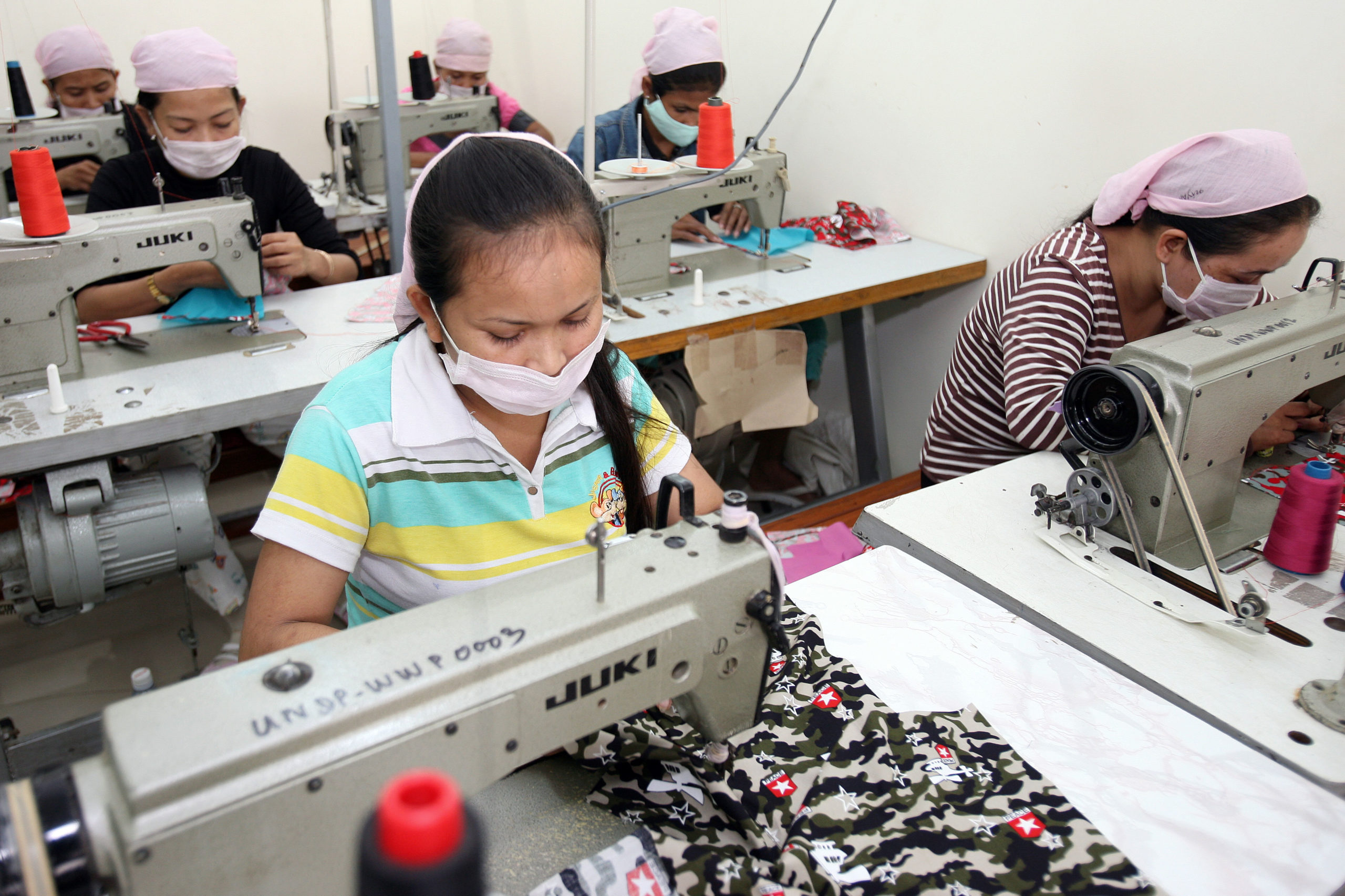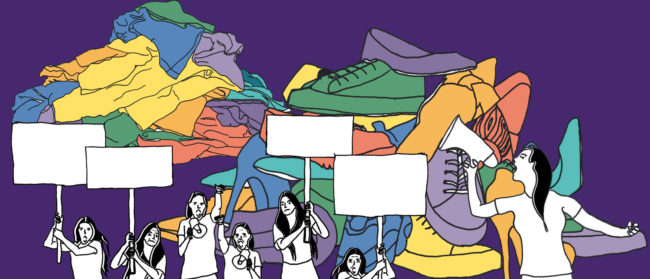Cambodian garment workers have had their jobs suspended by the thousands as global markets clench and governments enact drastic measures to stop the spread of the novel coronavirus (COVID-19). Now, as the US and European economies grind to a halt, local industry insiders warned on March 23 that further downturns and job losses are inevitable in Cambodia.
Ken Loo, secretary-general of trade group the Garment Manufacturers Association in Cambodia (GMAC), told the Globe that initially 55 factories in the Kingdom applied to suspend operations in early February, impacting about 15,000 jobs.
That first shock was due to a shortage of raw materials and textiles from China, where the virus appears to have originated. The growing Chinese outbreak in January and February led to an almost complete economic shutdown there, but that has since eased as rigorous state measures to control the virus’ spread have proved successful.
With Chinese supply “slowly returning to normal”, Loo said, 20 of those 55 suspended Cambodian factories have now resumed operations. However, the GMAC official warned the problem has now shifted from an issue of stalled supply from China to that of diminished demand from the West.
“In early February, the problem was on the supply side, but the issue is now on the demand side because of the shutdown [economic and social] in Europe and the US,” he said. “We now face a new situation where buyers are cancelling orders because of the situation in Europe. In the US, their stores are shuttered, so they have no need for our products.”
With the US and EU representing Cambodia’s largest export markets, the scale of the damage set to be inflicted by this emerging and evolving issue is still uncertain. But Loo did state that he expects to see “a lot more suspensions from factories due to the issue of demand” but added that there is “no way to estimate [how many]”.
As of publishing, there are 340,000 confirmed cases of COVID-19 and almost 15,000 deaths globally. While Wuhan, a city of 11 million people in China’s Hubei province, was the initial epicentre, the outbreak has since shifted to Europe and the US.
Italy is now behind only China (81,000) with close to 60,000 confirmed cases – a figure that has been rising by several thousand each day. This is a pattern witnessed across the continent, with six of the ten countries with the highest infection rates globally sitting in Europe. The US, meanwhile, has seen a surge of over 1,000 cases in the last 24 hours, with its total number now the third highest globally at 35,000.
With heavy restrictions on movement now in place across much of Europe and the US, most sectors of the economy have come to a stand still, sending stocks plummeting in markets worldwide. Wall Street, for instance, experienced its worst week since the 2008 financial crisis last week.
In Cambodia the knock-on effects of this global economic slow-down will be acutely felt. The Kingdom’s economy has already rocked by the partial removal of its access to the EU’s Everything But Arms trade privileges in early February, that will see tariffs placed upon 20% of its exports to the 27-member bloc come August at a cost in excess of $100 million. In addition, an almost complete shutdown of Cambodia’s tourism industry, which formed a 32.4% share of gross domestic product (GDP) in 2017 according to the OECD, due to the global pandemic will result in further job and revenue losses.
Cambodia is seeing an escalation in [COVID-19] cases which is impacting the tourism sector, and with conditions tightening in the EU and US trade will be seriously impacted
Sunniya Durrani-Jamal, ADB Cambodia country director
Sunniya Durrani-Jamal, the Asian Development Bank’s (ADB) Cambodia country director, predicted that the Cambodian economy is “going to slowdown” as a result of these factors, an effect that will be “felt over the next six months”.
“Cambodia is seeing an escalation in [COVID-19] cases which is impacting the tourism sector, and with conditions tightening in the EU and US trade will be seriously impacted,” she told the Globe. “Informal workers in urban centres will be particularly impacted.”
Durrani-Jamal emphasised that the priority right now must be to contain the virus if the economic impact is to be minimised.
“The main focus right now should be on COVID-19 containment, without which recovery of the tourism, services and manufacturing sectors will be difficult. Mass gatherings should be avoided,” she said.
On March 6, the ADB predicted that COVID-19 could impact the global economy ranging from $77 billion to $347 billion, or 0.1% to 0.4% of global GDP.
Durrani-Jamal added that the bank had announced a $6.5 billion stimulus package last week to meet the immediate needs of its developing member countries, of which Cambodia is one, in managing the health and economic consequences of the COVID-19 pandemic. She also pointed to government initiatives to prop up the industry in the short-term.
“The government has taken the right steps to provide wage support for garment workers, and a combination of tax and credit relief for businesses,” she said, also referring to the Cambodian government’s combined reserves of just shy of $19 billion – equivalent to eight or nine months of imports.
GMAC’s Loo confirmed that the government had agreed to subsidise 20% of minimum wage for garment sector workers to weather the short-term impact, with a further 40% paid by the factories. Whether these measures will prove sufficient in propping up the already fragile garment sector and its severely impacted workers is unclear.
And while government reserves will be able to subsidise Cambodia’s ailing industries in the short-term, during a health crisis with currently no end in sight and a global economic downturn seemingly limitless in scale, how long this can be sustained remains to be seen.


